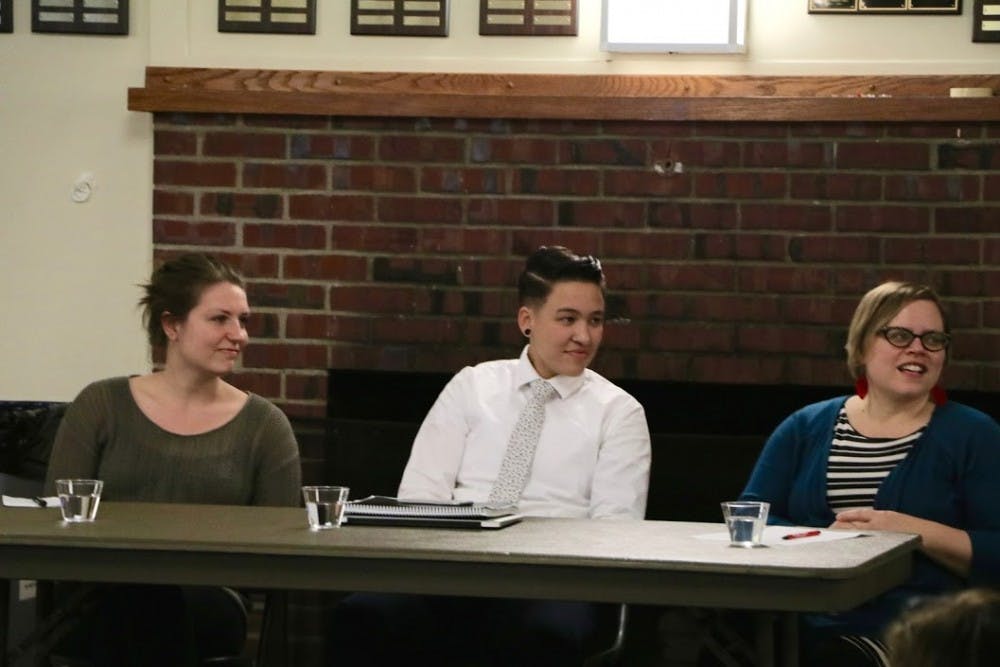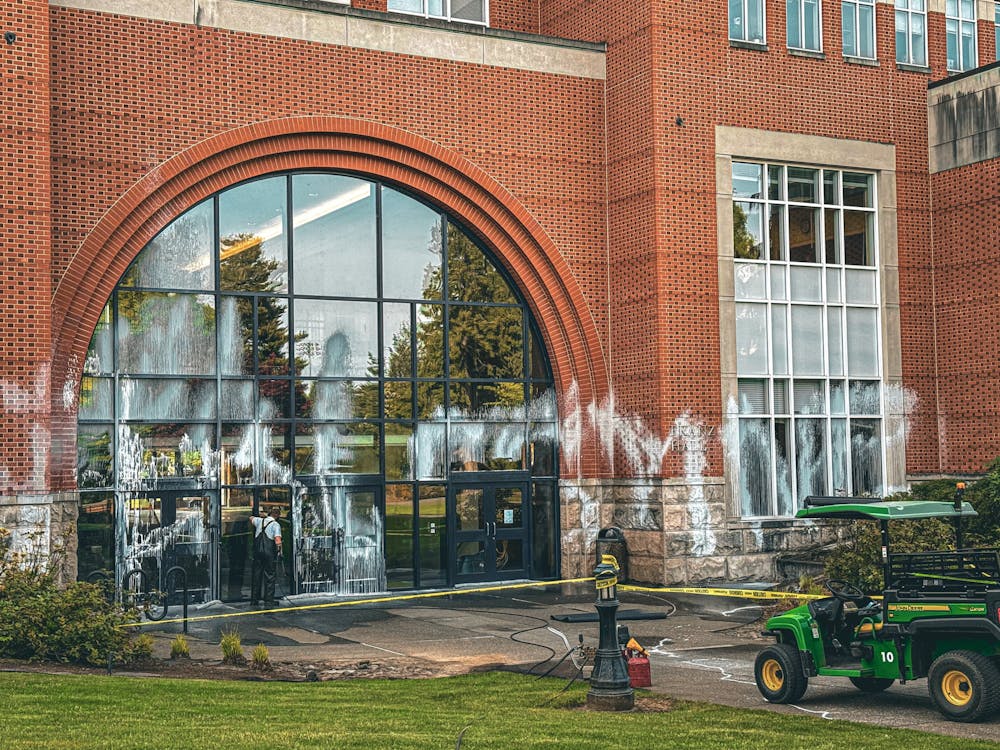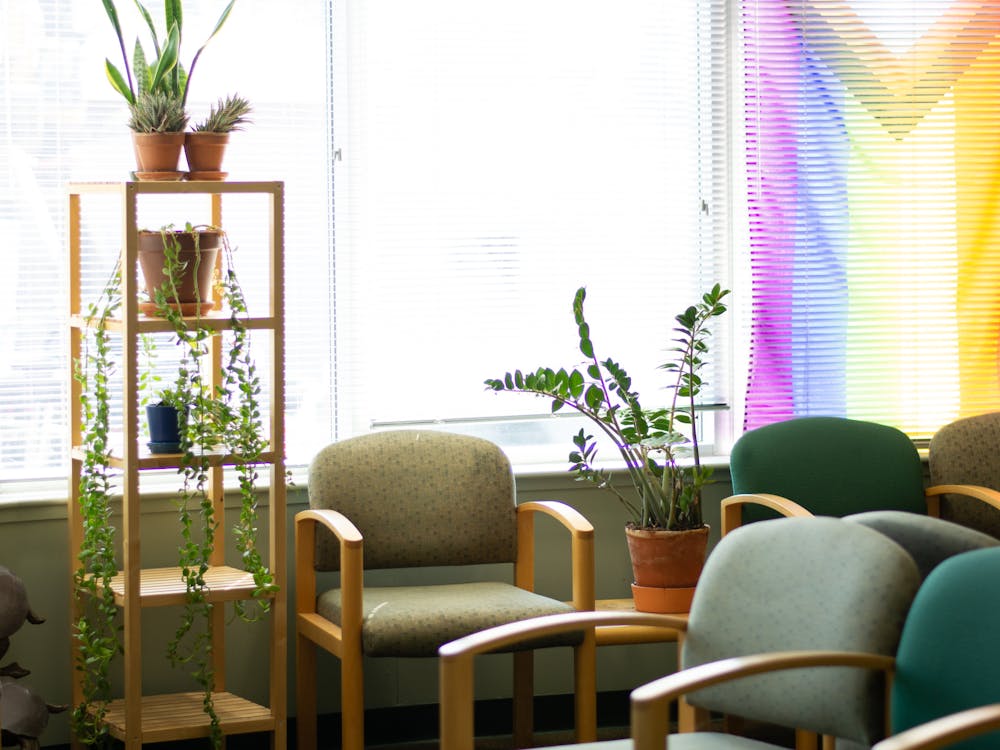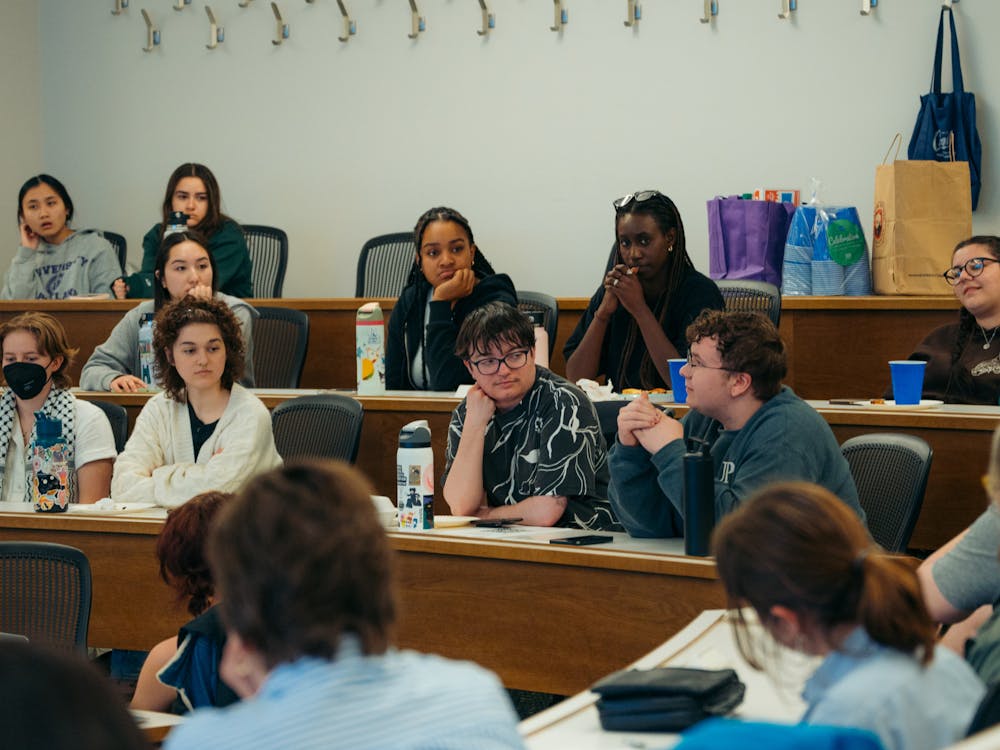The University of Portland’s service and justice coordinators hosted a panel to discuss off-campus resources for survivors of sexual assault Thursday night in Saint Mary’s. The panelists included Executive Director of Call to Safety Rebecca Nickels, Campus Coordinator for the Oregon Attorney General’s Sexual Assault Task Force Jackie Sandmeyer, and Volunteer Coordinator for the Sexual Assault Resource Center Morgan Evans.
The speakers offered information about the services their organizations provide, including crisis lines, support groups, discussion with advocates and case management services.
Call to Safety aims to support individuals who have experienced domestic or sexual violence by showing them resources, support and helpful information. A call to their crisis line is completely anonymous, but can be followed-up with an in-person informational and support meeting. The organization also sends volunteers to hospitals to show support to victims undergoing forensic exams following an assault.
Forensic exams - also referred to as “rape kits” - are meant to be taken up to 84 hours after the incident to gather evidence of a sexual assault. They are also focused on survivor wellness, including things like emergency contraceptives and treatment for sexually transmitted diseases.
The representatives said knowing how to talk to and support close friends who are survivors is essential, as well. Nickels gave the following advice on how to support survivors of sexual violence:
- Say simple things. The best thing you can do is to listen and believe them. Say things like “I’m sorry” or “I’m here for you”.
- Call a crisis line. It may be difficult to get through to the line, it is essential to keep trying. Most of all, assure them that it is 100 percent confidential.
- Avoid judgments. If you see that they are behaving differently or a certain way, it is normal. Let them know that you support them instead of expressing judgments.
- Remember they matter. Remind them that they are valued and cared for.
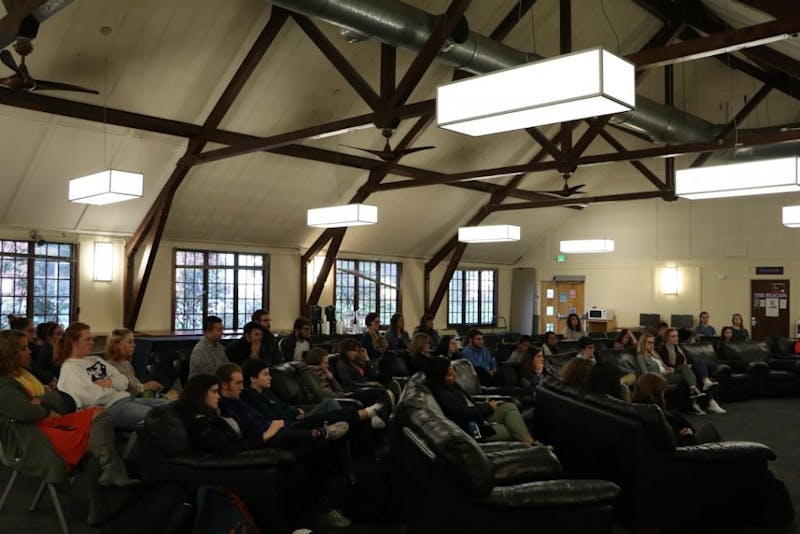
Sandmeyer explained how Title IX applies on college campuses, giving information about the origin and parameters of the law. The federal policy requires that men and women are given equal opportunities for learning, and thus involves providing resources and assistance to those who experience sexual harassment or violence on campus.
“We are working with the administration to improve communication (between administration and students),” Sandmeyer said. “If you give a student a safe space, a student will most likely disclose themselves.”
Students in attendance expressed concerns that UP’s religious affiliation might keep students from reporting sexual assault.
One student asked: “On this campus in particular, there is a lot of struggle around the fact that our campus’ confidential sources are priests and pastors, which is a huge barrier or obstacle to female identified survivors who don’t necessarily feel comfortable speaking to them about sexual intimacy. Can you talk about the process of expanding those services and how to go about that?”
Other confidential sources at UP include representatives from the health center and student SAFE advocates; they cannot report a sexual assault without consent. Faculty and staff, public safety, residence life representatives and Title IX Coordinator Lauretta Frederking are mandated reporters.
Evans ended by encouraging students to shift the traditional narrative surrounding sexual assault, saying that he aims to get away from the myth that sexual violence is a result of uncontrollable sexual urge. Her organization , the Sexual Assault Resource Center, works to ensure survivors know that perpetrators are the ones to blame for sexual assault.
“Your first reaction is to believe the survivor,” Evans said. “It is essential to build empathy with the survivors and strengthen relationships, because the perpetrator may be out there.”
--
If you have experienced a sexual assault or have questions about any of the services mentioned above, please see the contact information for each of the organizations below:
Call to Safety 24/7 Crisis Line:
24/7 access to interpreters and offer advocacy in any language of the caller’s choice.
Call: 888-235-5333
Website: https://calltosafety.org/
The Sexual Assault Resource Center:
Call: 503-626-9100
Website: www.sarcoregon.org
Report to Oregon Attorney General’s Sexual Assault Task Force:
Website: http://campus.oregonsatf.org/



